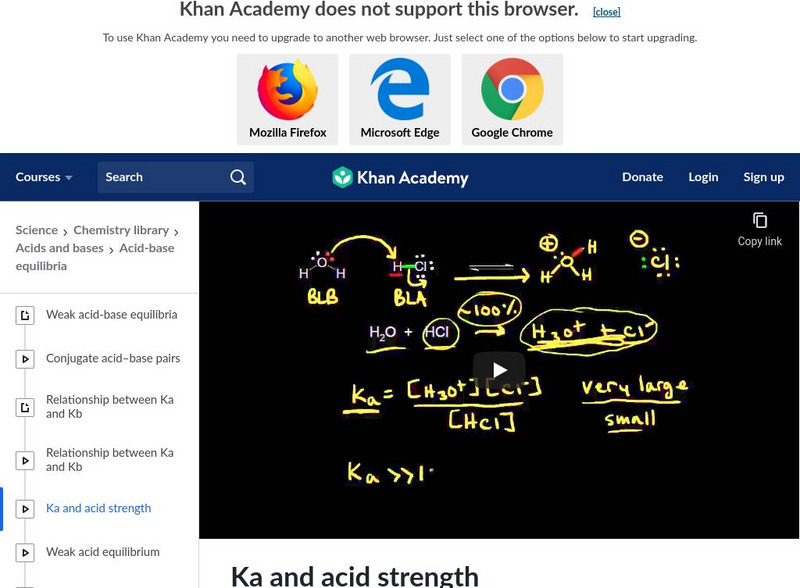Professor Dave Explains
Acids and Bases, pH and pOH
We've all heard the terms acid and base. What do these mean? Don't just tell me about pH, silly. What structural detail makes a molecule an acid or a base? You don't know? Well, you'd better watch this then. You don't want to be...
Professor Dave Explains
Practice Problem: Calculations Involving pH and Ka
We know a bit about acids and bases, including the definitions of pH and pKa, as they relate to an acid-base equilibrium. If we have a weak acid and its concentration, as well as the pH of the solution, can we calculate the Ka for the...
Professor Dave Explains
Practice Problem: Mechanism - Acid Catalysis
For this one we need to know what happens to alcohols under acidic conditions. Beware of tricky carbocations!
Professor Dave Explains
Practice Problem: E2 on Cyclic Systems and Cyclohexane Chairs
For this one we will want to recall some of the rules about doing E2 on a cyclohexane ring, as well as the relative stabilities of cyclohexane chairs. Combining concepts! Predicting kinetics!
Professor Dave Explains
Practice Problem: Site of Protonation on a Weak Base
For this one we will need to understand the basics about Bronsted-Lowry acid-base reactions, and we also should be able to gauge the stability of various potential conjugate bases.
Professor Dave Explains
Practice Problem: Analyzing Acid-Base Equilibria
Acids! Bases! Conjugate acids! Conjugate bases! We definitely have to be able to label such things, and we should also know how to state which direction in an acid-base equilibrium is preferred. To do this we should know how to tell...
Professor Dave Explains
Practice Problem: Reaction of a Terminal Alkyne
We've got a terminal alkyne, and we're gonna do some stuff to it. What will we get? What's that Grignard reagent gonna do? Be careful!
Professor Dave Explains
Practice Problem: Titration Calculations
Titration is a way to do stoichiometry with acids and bases. The equivalence point tells us something about the moles of acid and base that are present in solution at that moment. And if we know one of those values, we can know the...
Professor Dave Explains
Acid-Base Titration
Any introductory chemistry class will include titrations, and to do these, you have to do math. But you get to see pretty colors, too! Here's a quick run through of the stoichiometry of it all.
Professor Dave Explains
Acid-Base Equilibria and Buffer Solutions
Remember those pesky iceboxes? Weak acids and bases establish equilibria, so we have to do iceboxes to figure out things about them. But don't worry, buffers are neat.
Professor Dave Explains
Neutralization Reactions
We know about acids and bases, and we know about acid-base reactions, so what is a neutralization reaction?
PBS
Pbs Learning Media: Acids and Bases: Testing Rockets
What happens when you mix baking soda and lemon juice? Watch the ZOOM cast launch a rocket using kitchen chemistry. [3:26]
Khan Academy
Khan Academy: Ka and Acid Strength
Learn how to write an equilibrium expression for an acid-base reaction and how to evaluate the strength of an acid using Ka. [9:18]
National Science Foundation
National Science Foundation: Secret Writing
A demonstration of how to write a reversible secret message using goldenrod colored paper, a candle, and ammonia-based window cleaner. [1:58]


